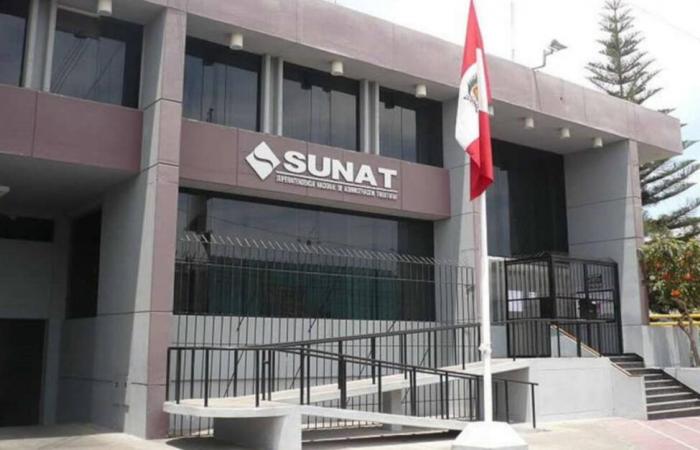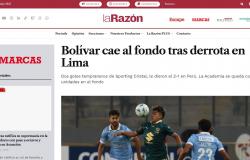Peruvian justice could stop the sale of Telefónica del Perú (TDP). The tenth Permanent Constitutional Court of Lima has admitted to processing an amparo demand that seeks to avoid the transfer of actions of Telefónica Hispanoamérica, Matrix of TDP, to Argentina Integra Tec, which acquired the subsidiary of the Spanish company on April 13.
The lawsuit was filed by the main private creditors of Telefónica del Perú – among them, administrators of pension funds (AFP) and insurance companies – in order to block the sale of Telefónica del Perú to Integra Tec, according to Adrián Simons, representative of the creditors, claiming that with the demand they seek to exercise their “right to preserve the value of the company”. The largest creditor is the National Superintendence of Customs and Tax Administration (SUNAT) -the Peruvian Tax Agency -, with 2,473 million soles (634.5 million euros). Secondly, the bond holds issued by the company are listed, in a total volume of 2,365 million soles (606.3 million euros).
Simons said the announcement of the sale was made without previously informing the creditors. This despite the fact that they submitted a request to benefit from an ordinary bankruptcy procedure before Indecopi, so the future of the company should be subject to the decision of the creditors. Thus, he indicated that the sale was made irregularly and constituting an abuse of the right to transfer shares.
“The judge could determine that there was an abusive exercise of the right and, consequently, allow the Board of Creditors to pronounce on the transfer, deciding whether or not they approve it. The creditors have that right, since they acquired bonds of Telefónica del Perú, while Telefónica Hispanoamérica was their only shareholder,” said Simons in statements to the local press, which he estimates that the sentence of first instance could be delayed until one year.
The lawsuit is uncertain. As Telefónica recalled in the relevant fact when it notified the sale to Integra, the operation is closed from the regulatory and competition point of view, and any action of the Peruvian administration must fall on the buyer. However, the plaintiffs argue that justice can intervene to undo the operation. Telefónica has declined to comment on this information.
Telefónica presented on February 24 an application to the National Institute for the Defense of Competition and the Protection of Intellectual Property (INDECOPI) to benefit from an ordinary bankruptcy procedure with the purpose of orderly restructuring its debts, due to fiscal lawsuits with the country’s farm that has been dragging for two decades for more than 1,000 million euros. Just two months later, on April 13, Telefónica announced the sale of its subsidiary to Argentina Integra Tec International for about 3.7 million Peruvian soles (900,000 euros at the current exchange rate). The transaction includes the assumption of the debt so the amount is much higher than the agreed symbolic price.
The lawsuit argues that Telefónica Hispanoamérica exercised its right of transfer in an abusive way, affecting the interests of third parties. Bonists also discuss the capacity of the buying company to assume the management of one of the country’s largest firms. This is Integra Tec, a company of the Argentine group matrix but based in Panama, created just a month before the transaction, with a capital of only $ 10,000 and without experience in the telecommunications sector.
The judicial appeal also intends to protect the right of property from the creditors, represented in the corporate bonds issued by the company in 2019 for 1.7 billion soles, about 406 million euros. AFPs are the greatest holders of these titles, which are at risk of default since they are not backed by the matrix. Those high risk bonds paid a very high interest in return. Simons denounced that the sale operation was a maneuver to avoid the formation of a bank of creditors that can evaluate the financial situation of the ‘Telco’ and define its future.
“This transfer was made without knowledge or consent of the creditors, and in a context in which a bankruptcy process had already begun. It was a deliberate attempt to prevent the bonds from exercising their role within a meeting of creditors,” said Simons in an interview with the Peruvian newspaper Management. “What they are looking for is to keep control without paying, moving the creditors. You cannot allow a company of this magnitude to be delivered by a ridiculous value, behind those who have financed their operation,” he added.
The case is developed in parallel to the company’s bankruptcy strategy, according to the local press. On April 30, Telefónica del Perú – under the control of Integra Tec International – presented an application to Indecopi to benefit from a preventive bankruptcy procedure (PCP), with automatic suspension of the enforceability of its debts. The objective would be to refinance your liabilities through an agreement with your creditors, without going to liquidation. Unlike the ordinary bankruptcy procedure (PCO) requested in February by the company when it was still in the hands of Telefónica Hispam, the PCP allows the company to gain time and protect its operations while negotiating a restructuring. The company has assured that this new route seeks to preserve the continuity of the service and comply with the legal obligations of the process.
EMBARGO OF PROPERTY
And while the demand is substantiated, the Peruvian hacienda continues its fierce battle for charging the tax debt that blames TDP. The SUNAT has proceeded to the embargo of various telephone properties of Peru (TDP) worth 822.8 million pesos (198.7 million euros) as part of the shares aimed at ensuring the collection of a tax debt corresponding to the income tax of the 2000, 2001 and 2009 whose term expired at the end of last March, as reported by TDP to the Superintendence of the Securities Market (SMV).
First, on April 24, SUNAT notified that it had already seized the company’s properties for 513.8 million Peruvian soles (123.7 million euros). In a second batch, notified on May 1, embargoes were made for 319 million pesos (76.8 million euros)
The company, which is already completely managed by its new Integra owners, said that the measure does not restrict the use or enjoyment of affected goods. “It is important to note that the aforementioned embargoes do not affect the assets of the company, do not compromise its viability or affect the continuity of the provision of public telecommunications services that it provides to its more than 13 million customers. The preservation of the integrity of the operation is essential to guarantee the fulfillment of its obligations within the bankruptcy procedure,” said the company in the relevant fact sent to the stock registration.






